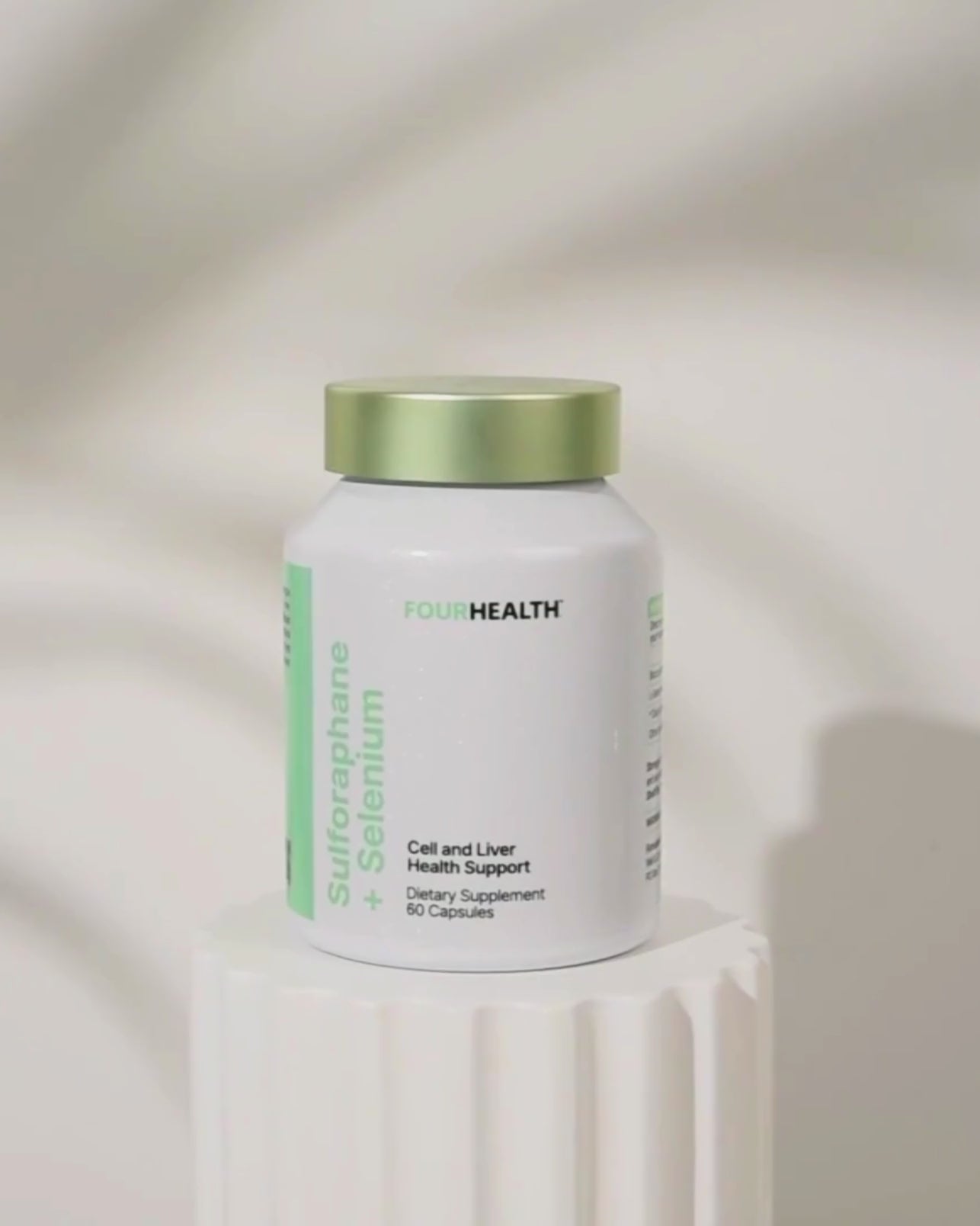May is Mental Health Awareness Month, a time to raise awareness about mental health issues and promote mental wellness. In this post, we want to shed light on the benefits of Sulforaphane, the active ingredient in FourHealth Green+.
Sulforaphane is a naturally occurring compound that has been linked to improved mental health outcomes, including neuroprotection, enhanced mood, and cognitive function. Moreover, Sulforaphane has been found to have anti-inflammatory effects, which can help alleviate symptoms of various mental health disorders.
To learn more about the benefits of Sulforaphane for mental health, take a look at some of the best studies on SFN below and discover how it can support your mental well-being.
Check out some of the best studies on Sulforaphane below:
Biological mechanisms and clinical efficacy of sulforaphane for mental disorders
Gen Psychiatr. 2022; 35(2): e100700.
Current clinical management of major mental disorders, such as autism spectrum disorder, depression and schizophrenia, is less than optimal. Recent scientific advances have indicated that deficits in oxidative and inflammation systems are extensively involved in the pathogenesis of these disorders.
Sulforaphane is an effective activator of the transcription factor nuclear erythroid-2 like factor-2, which can upregulate multiple antioxidants and protect neurons against various oxidative damages. SFN can also significantly reduce inflammatory response to pathological states and decrease the damage caused by the immune response via the nuclear factor-κB pathway and other pathways.
This review introduces the biological mechanisms of SFN and the pilot evidence from its clinical trials of major mental disorders, hoping to promote an increase in psychiatric clinical studies of SFN.
Sulforaphane Augments Glutathione and Influences Brain Metabolites in Human Subjects: A Clinical Pilot Study
Mol Neuropsychiatry. 2018 May; 3(4): 214–222.
This study has found that daily consumption of sulforaphane led to a significant increase in levels of the antioxidant glutathione (GSH) in human subjects. Pre- and post-dose urine analysis confirmed the presence of urinary sulforaphane metabolites, affirming the participants' adherence to the oral sulforaphane protocol. The increase in GSH was observed in a mixture of T cells, B cells, and NK cells after one week of sulforaphane administration, and age, sex, and race were not found to be explanatory variables. This research suggests that dietary intake of sulforaphane may have beneficial effects on antioxidant levels in the body.

Sulforaphane activates anti-inflammatory microglia, modulating stress resilience associated with BDNF transcription
Acta Pharmacol Sin. 2022 Apr; 43(4): 829–839.
Inflammatory activation has been demonstrated to play a key role in the pathogenesis of depression. Patients with major depressive disorder (MDD) or stress vulnerability exhibit higher levels of circulating pro-inflammatory cytokines and low levels of anti-inflammatory cytokines. In this study, researchers investigated the impact of sulforaphane (SFN) on pro- and anti-inflammatory cytokine release in mice exposed to chronic social defeat stress (CSDS). Results showed that stressed mice had significantly higher levels of pro-inflammatory cytokines, but pretreatment with SFN helped to rectify these levels. The study also found that SFN treatment reversed the decreased levels of two anti-inflammatory cytokines, indicating that it may improve stress resilience by reducing abnormal inflammation.






